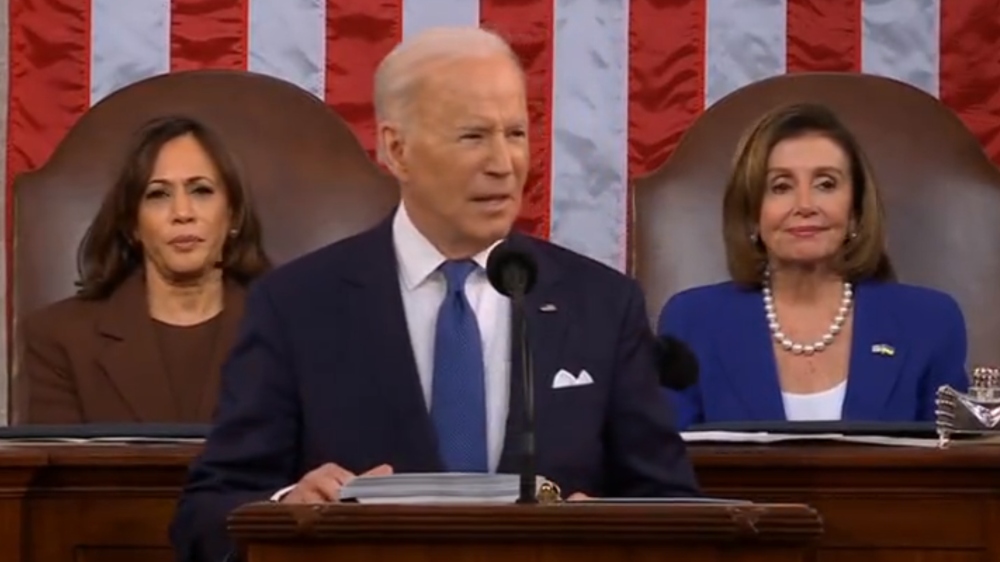Oil industry warns of imminent refining crisis, thanks to Biden’s “green” policies that equate to energy SABOTAGE against America
09/12/2023 / By Richard Brown

President Joe Biden’s unconventional and assertive stance toward the U.S. oil exploration and production (E&P) sector has drawn criticisms. This has even led some to suggest the Federal Reserve intentionally sells oil to keep prices low and ensure his reelection.
With the U.S. Strategic Petroleum Reserve significantly depleted, speculation has grown that the Fed may be actively engaged in oil futures trading. Consequently, the prospects for new refinery construction have become increasingly bleak. Due to diminished capital expenditure, the already strained U.S. refining infrastructure is on the brink of becoming the primary limiting factor for gasoline production.
The earlier predictions have now become a reality, as reported by Bloomberg. The global refining system is under severe strain, which is anticipated to lead to heightened volatility in fuel prices.
This concern was emphasized by top oil executives during discussions at the Asia Pacific Petroleum Conference by S&P Global Insights held in Singapore.
One significant issue brought to the forefront by industry leaders is the lack of available crude-processing capacity, stemming from chronic underinvestment in the sector. The loss of Northeast refining capacity in recent years is playing a key role in the resulting shortage.
“In the past 15 years, the number of refineries on the U.S. East Coast has halved to just seven. The closures have reduced the region’s oil processing capacity to just 818,000 barrels per day, down from 1.64 million barrels per day in 2009. Regional demand, however, is stronger,” said Bloomberg‘s Javier Blas.
This problem is exacerbated by the increasing frequency of refinery shutdowns as companies seek to maximize profits by delaying planned maintenance. These dynamics have left critical fuels like diesel and gasoline highly vulnerable to sudden price fluctuations during unplanned outages.
Frederic Lasserre, global head of research and analysis at Gunvor Group Ltd., underscored the gravity of the situation by highlighting that deteriorating infrastructure in Europe has resulted in almost weekly unplanned plant shutdowns.
Many refiners have chosen to defer routine maintenance, rendering their facilities susceptible to unexpected technical issues that lead to outages. Lasserre emphasized that the market is exceptionally sensitive to any unanticipated supply disruptions, further exacerbated by the absence of backup plans or surplus capacity in the refining sector. (Related: Energy executives tell Sec. Granholm: Shuttered oil refineries are NOT restarting soon.)
These recent unplanned outages and the overall tightness in refining capacity underscore the formidable challenges faced by the industry as the world transitions from fossil fuels to cleaner energy sources.
Russell Hardy, CEO of Vitol Group, echoed these concerns by highlighting the scarcity of oil products in Western markets, primarily resulting from the closure of numerous plants during the Wuhan coronavirus (COVID-19) pandemic.
Refinery outages drive up diesel prices
Diesel, a vital fuel for the global economy, has seen its price outpace the increase in crude oil prices due to a series of refinery outages, partly driven by excessive heat conditions. Insufficient stockpiles have created a notably robust diesel market structure, indicative of market tightness, as noted by Ben Luckock, co-head of oil trading at Trafigura Group.
The rising costs associated with funding standard refinery projects have made such investments less attractive. Consequently, existing refineries are expected to operate at their maximum capacity, sustaining high refining margins.
Industry experts stress the pressing need for fresh investments in the refining sector, especially considering the ongoing growth in oil demand, particularly in Asia. This urgency is compounded by the imperative of aligning with the green energy transition.
As the world grapples with the challenges of transitioning from fossil fuels to cleaner energy sources, these discussions among oil executives underscore the critical role that refining infrastructure plays in ensuring stable and reliable fuel supplies, all while addressing environmental concerns.
GreenDeal.News has more stories about the adverse effects of green policies.
Watch the video explaining the green energy trillion-dollar scam.
This video is from the Greekinsider channel on Brighteon.com.
More related stories:
Analysts: Biden green energy agenda could cost $1.2T.
Energy industry chief says he could see Biden seizing control by declaring “climate emergency.”
Sources include:
Submit a correction >>
Tagged Under:
Biden administration, big government, collapse, diesel, energy crisis, energy independence, energy supply, fuel supply, green deal, Green New Deal, green policies, green tyranny, Joe Biden, oil industry, oil refineries, oil refining, panic, refining crisis, scarcity, supply chain warning
This article may contain statements that reflect the opinion of the author
RECENT NEWS & ARTICLES
GreenTyranny.News is a fact-based public education website published by GreenTyranny News Features, LLC.
All content copyright © 2018 by GreenTyranny News Features, LLC.
Contact Us with Tips or Corrections
All trademarks, registered trademarks and servicemarks mentioned on this site are the property of their respective owners.



















